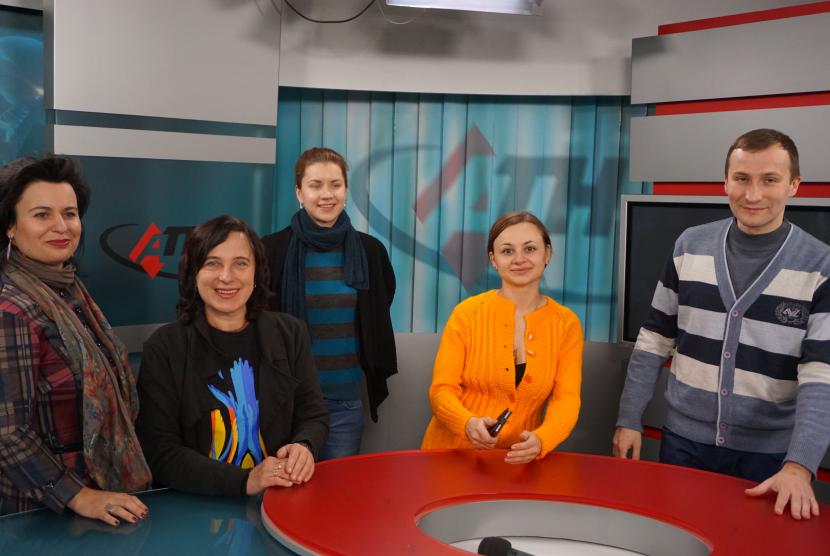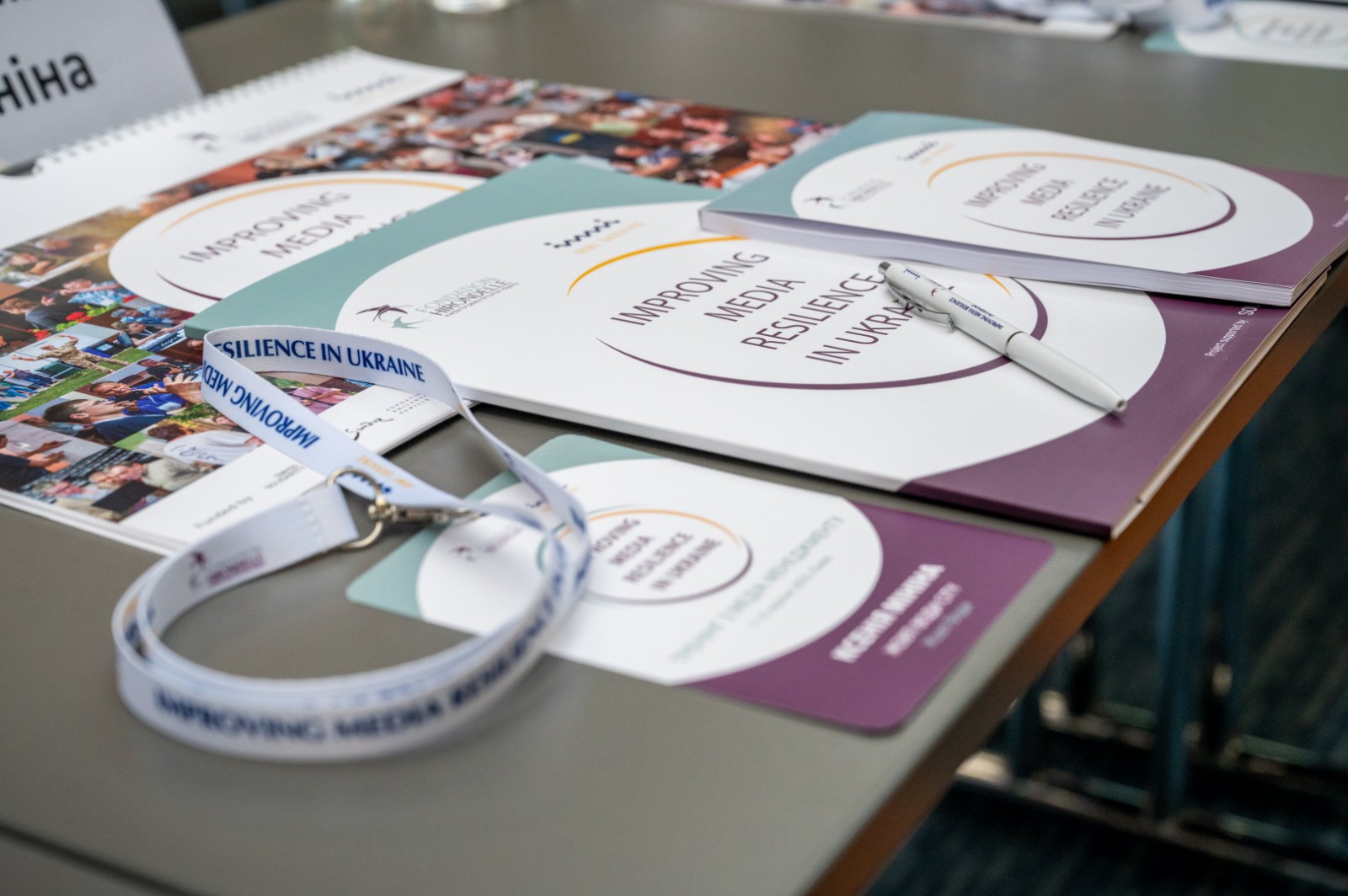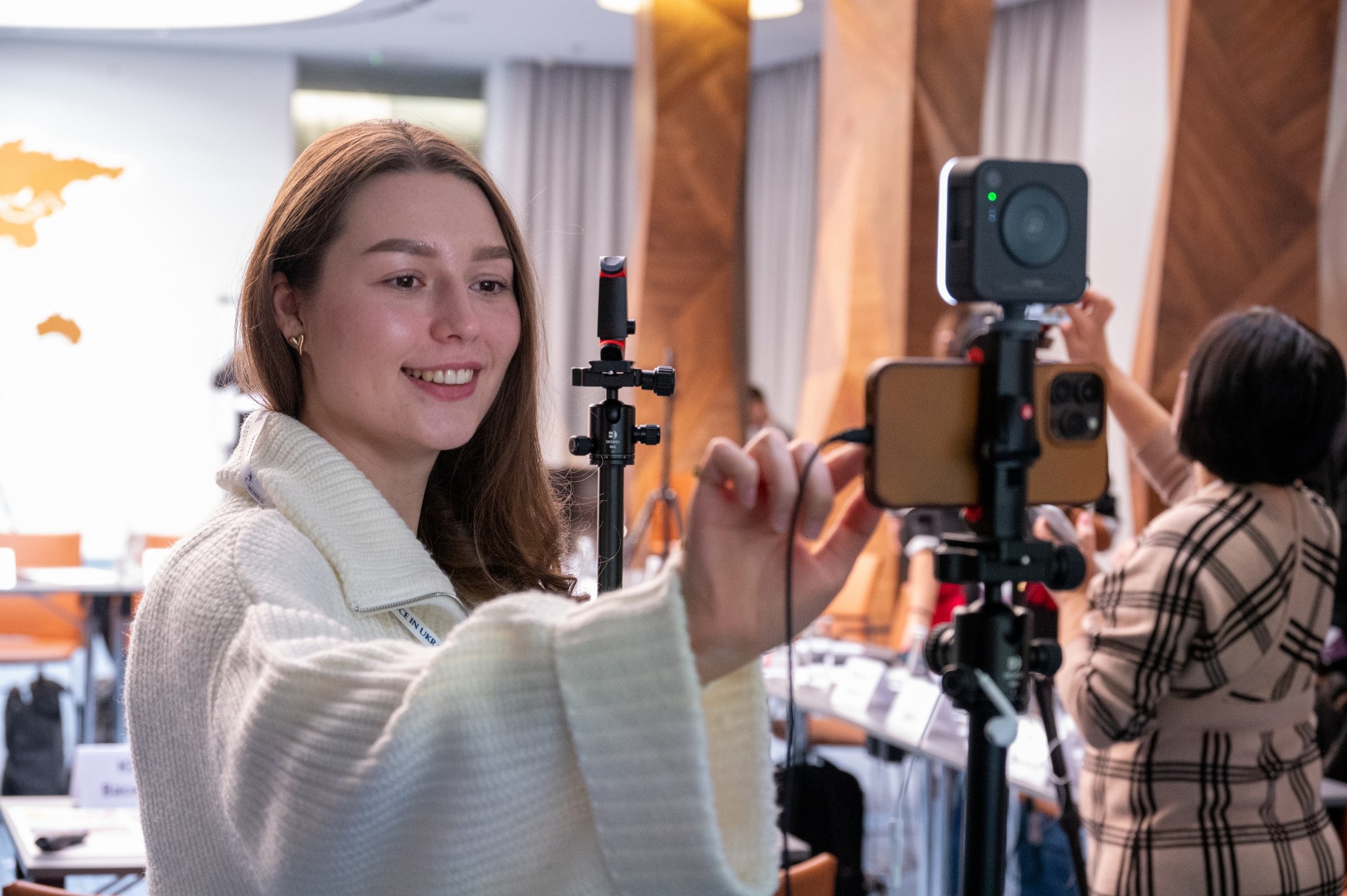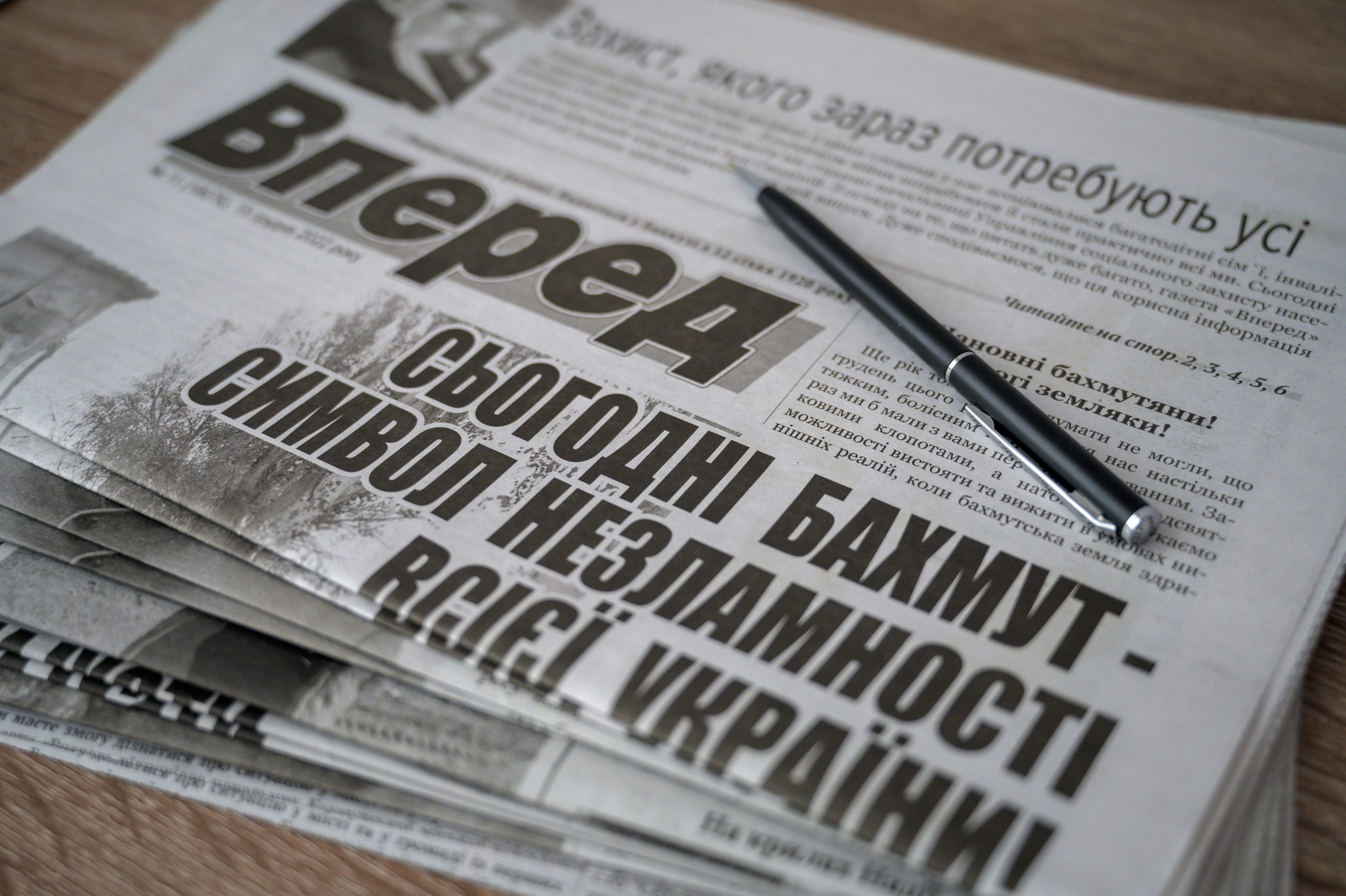First within a series of training events for PR-specialists of Ukrainian CSOs dealing with IDP assistance took place in Kharkiv. The training events are part of “Regional Voices: Strengthening Conflict Sensitive Coverage in Ukraine’s Regional Media” project.
The project is a year and a half EU funded initiative, implemented by the Media Consortium of five organizations: Thomson Foundation, Institute of Regional Media and Information (IRMI), MEMO 98, Association Spilnyi Prostir (ASP) and the European Journalism Center.
What is the best way to spread information about the work of an organization among different target groups and mass media? How do we develop a communications strategy? How do we create an event that would be attractive for public and mass media?
Not only did the participants discuss professional subtleties, they also drew up press-releases and ran a press-conference. Each of them did an on-camera interview and discussed the results of their performance.
Veronika Fomenko, Assistant Advisor on Communications for “Pravozakhyst”:
– I am part of communications department in my organization but without specialized background. I have been following my intuition in many things at work, my boss helping me out on many occasions. The training helped me understand what kind of knowledge I am lacking. I am now aware that apart from organizing a press-conference a public information officer is to moderate the thing and be among its participants. Our job is broader than we thought it was. It was also curious to be able to take a step back and see your own performance during the interviews. I was nervous. I know I need to work on my skills. However, it was a good start.
Tetyana Stepykina, Communication Coordinator at Norwegian Refugee Council, Ukraine:
– That was my first training event on media communications. I know, however, that trade training events for humanitarian organizations professionals are quite rare. Considerable attention was paid to ethical norms, independence and transparency. The most important sessions to me were the drawing up of a press-release, the organizing of a press-conference and, without a doubt, mock on-camera interviews.
The trainers – Angelina Soldatenko of International Institute for Regional Media and Information and Mark Webster of Thomson Foundation instructed the participants on how to feel more relaxed in front of the camera, use gestures to their benefit, pass their message across within the set time and concentrate on questions. The participants also learnt how to “sell” an event, an idea or a project.
The participants were taken on a newsroom visit to the quarters of ATN News Channel, where they had a chance to see with their own eyes how the outlet is operating and discuss the ways of effective cooperation.
The training session of level two is to take place on 18-21 March in Kharkiv.
The participants are going to find out more about professional approaches in the work of mass media and the subtleties of crisis communication as well as to broaden their presentation skills. According to Angelina Soldatenko, the agenda is based on the requests of the target audience.








